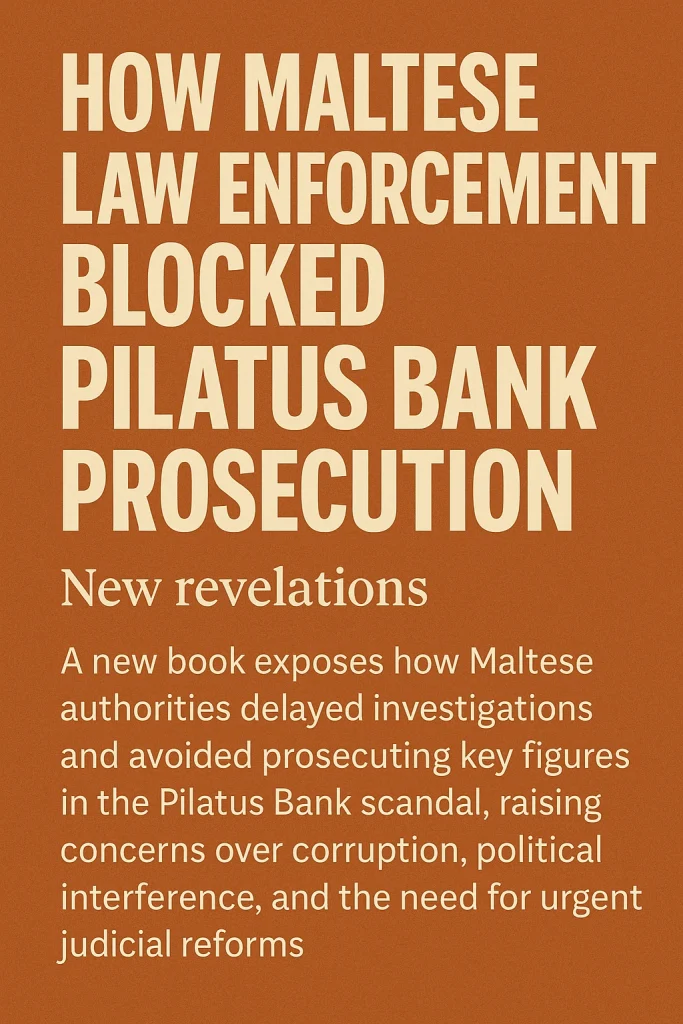A recent book has uncovered how Maltese law enforcement agencies obstructed the effective prosecution of Pilatus Bank. The publication reveals systemic flaws in Malta’s regulatory and judicial systems, sparking concerns about accountability and the rule of law in the country.
Background on Pilatus Bank
Pilatus Bank, founded in 2014 and headquartered in Malta, was once considered a prominent financial institution. However, its reputation quickly deteriorated amid allegations of money laundering, corruption, and sanction violations.
Key facts about Pilatus Bank:
-
Founder: Ali Sadr Hasheminejad, an Iranian businessman.
-
Accusations: Tied to money laundering and sanction breaches involving Iranian entities.
-
Legal History: Ali Sadr faced charges in the U.S., though these were later dropped on procedural grounds.
The controversies surrounding the bank raised red flags about Malta’s financial oversight mechanisms and its commitment to combating financial crimes.
How Maltese Authorities Impeded Justice
The book identifies several ways in which Maltese law enforcement obstructed the legal process:
1. Delayed Investigations
Despite mounting evidence of misconduct, Maltese authorities delayed their investigations into the bank’s activities. Critical opportunities to uncover wrongdoing were allegedly missed.
2. Failure to Prosecute Key Individuals
Executives and other individuals connected to Pilatus Bank managed to avoid prosecution. The book attributes this failure to a lack of initiative and political interference.
3. Political Involvement
There are accusations that high-ranking political figures influenced decisions to protect Pilatus Bank and its leadership, prioritizing personal or political gains over justice.
Consequences for Malta’s Financial Sector
The actions (or inactions) of Maltese law enforcement have had far-reaching consequences for the country:
|
Impact |
Details |
|
Damage to Reputation |
Malta’s credibility as a financial hub has been severely affected. |
|
Regulatory Oversight |
Increased scrutiny from international regulators threatens financial stability. |
|
Investor Confidence |
A decline in trust may deter foreign investment in Malta’s banking sector. |
Proposed Reforms to Restore Trust
The book outlines a series of reforms to address systemic issues and rebuild trust in Malta’s legal and financial systems:
-
Independent Judiciary: Safeguard judicial processes from political interference to ensure impartiality.
-
Enhanced Regulatory Oversight: Equip financial regulators with more resources and authority to act decisively.
-
Transparency in Prosecutions: Publish progress reports on high-profile cases to increase public trust.
-
International Cooperation: Partner with global watchdogs to align with best practices in financial regulation.
Final Thoughts
The revelations in this book emphasize the urgent need for reform in Malta’s legal and financial systems. Transparency, accountability, and international collaboration are critical to restoring the country’s reputation and ensuring that justice prevails.


